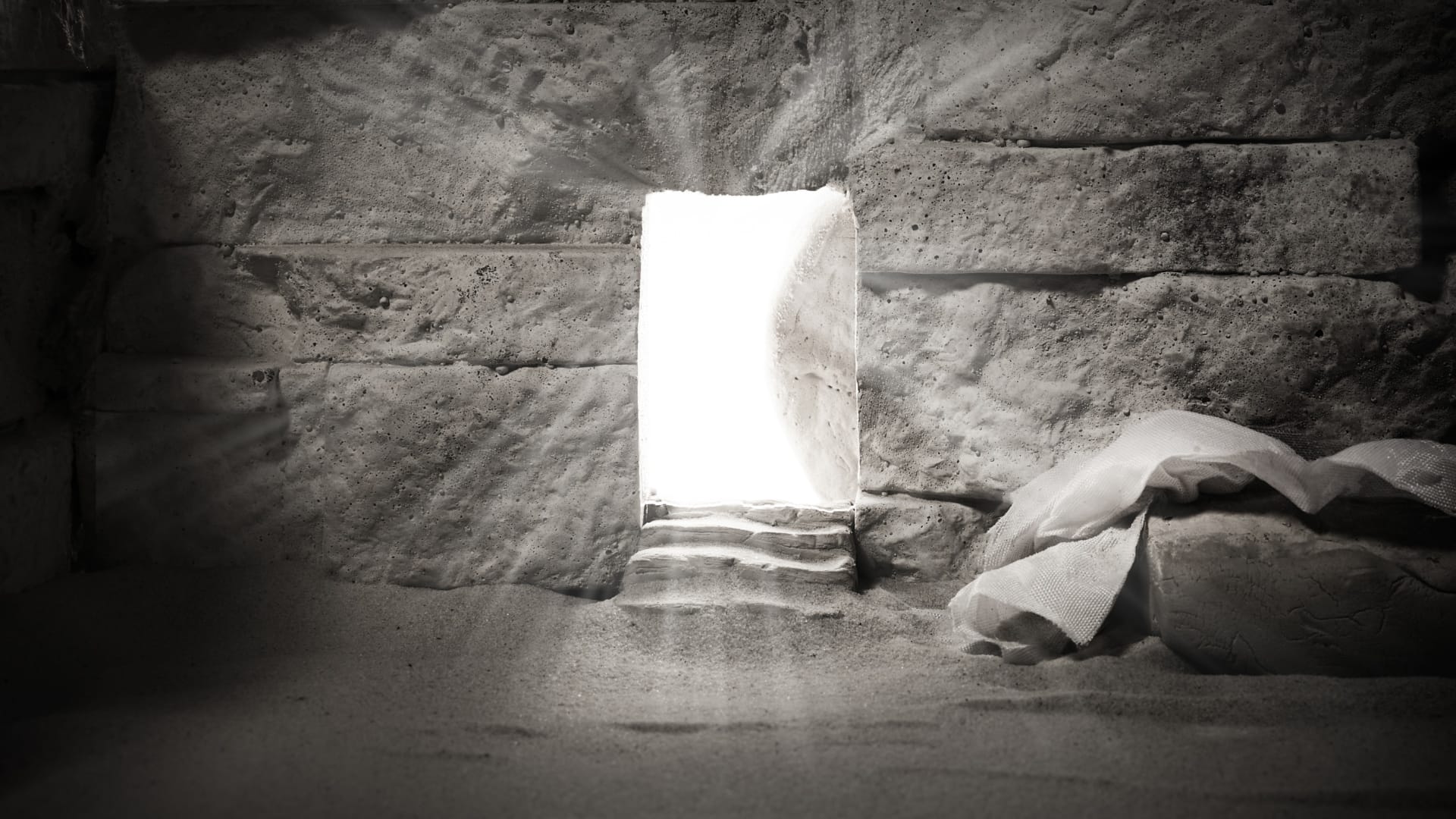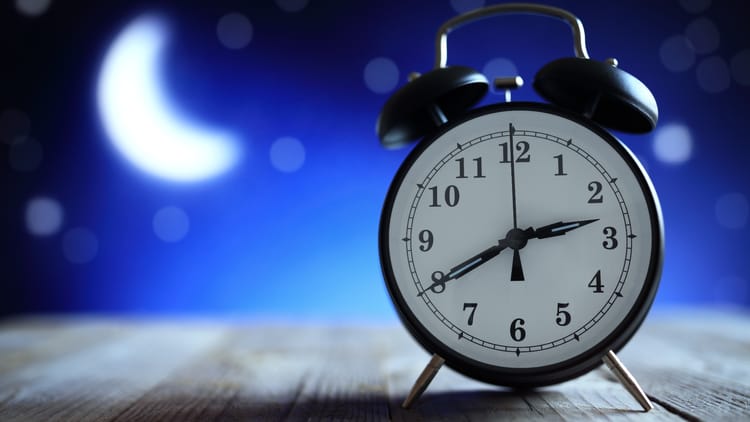Like a Weaned Child (Psalm 131)

Big Idea: Let go of pride and burdens that are too heavy for you to carry, and pursue calm, quietness, and rest in God’s presence.
I need to be honest with you. I’ve spent the past year pretty close to a state of overwhelm. The news in the world has been so hard that it’s difficult sometimes to even know how to function well.
This came home to me this past week. On Tuesday morning my mother texted me to let me know that a relative of mine had passed away from COVID in South Africa. I felt awful, and told her that I was praying for the family. She responded by saying, “Thanks. He lay there alone for days.”
I didn’t know what to do with that. I could feel myself going numb. The combination of watching the horrible news about Afghanistan this week, and then the close-up of someone close to my family dying completely alone, is enough to overwhelm me. It makes me want to shut off because it’s all simply too much to bear.
Maybe you’re there too.
That’s why today’s Psalm is so important. It’s a short one, just three verses. To anyone who feels overwhelmed with life, this psalm provides the path forward to sanity that all of us need. It will help us find rest in the midst of the craziness, and even more importantly, that will draw others to put their hope in God as well.
Psalm 131 was written by King David. You’ll notice that it’s called “A Song of Ascent.” Psalms 120-134 are all called Songs of Ascent. They were written to be sung by pilgrims as they journeyed to Jerusalem for the festivals three times a year. They’re songs that prepare us to worship.
Qualities to Avoid
This psalm begins by giving us some negative traits to avoid. Unfortunately, these traits come pretty easily to most of us, but they are detrimental to our wellbeing and to worship of God. To the extent that we have these traits, we will not be at rest. To the extent that we have these traits, we will not be able to love God and our neighbors well.
What are these traits? Read verse 1 again:
O LORD, my heart is not lifted up;
my eyes are not raised too high;
I do not occupy myself with things
too great and too marvelous for me.
So here’s a negative picture. David is giving us a picture of himself, and he says that there are two negative qualities that he avoids as he comes to God in worship.
The first is pride. He says, “My heart is not lifted …up; my eyes are not raised too high.” Can’t you just see the picture that David is painting in contrast to himself? Someone who not only has a proud heart, but who struts around and peers down at you from his elevated state. Here’s what it looks like to not be a person who hasn’t found rest in God and who isn’t able to worship: think lots about yourself, very highly of yourself, and look down on others. That’s a trait you want to avoid.
Let me give you the best definition of pride I’ve been able to find. “Pride is when sinful human beings aspire to status and position of God and refuse to acknowledge their dependence upon him” (C.J. Mahaney). What I love about this definition is that it makes sense of why pride is so antithetical to worship. Pride is all about self-glorification. Pride is about worship, but not the worship of God – it’s about the worship of self. When we are proud we are essentially robbing God of his rightful glory and seeking to glorify ourselves. We’re depriving God of something that he alone is worthy to receive. It’s like if I sang, “In my life, Darryl, be glorified, be glorified.”
The problem, of course, is that all of us are proud. It is part of our sin nature to suffer from pride. This is a serious problem. In fact, pastor and theologian John Stott says that pride is “more than the first of the seven deadly sins; it is itself the essence of all sin.” Proverbs says that pride is number one on the list of things God hates (Proverbs 6:16-17). Theologian Jonathan Edwards called pride “the worst viper that is in the heart” and “the greatest disturber of the soul’s peace and sweet communion with Christ.” He ranked pride as the most difficult sin to root out, and “the most hidden, secret, and deceitful of all lusts.”
That’s why David starts here. Pride will destroy you. If you are proud, God himself will oppose you (James 4:6). You will not be well if you think too highly or too often of yourself, or if you look down on others.
There’s a second negative quality that David mentions.
The second quality to avoid is a refusal to accept our limits. It’s related to pride. David says, “I do not occupy myself with things too great and too marvelous for me.”
In her book The Hiding Place, Corrie ten Boom tells of an event that took place when she was 10 or 12 years old as she traveled with her father on a train from Amsterdam to Haarlem. She had stumbled upon a poem that had the words “sex sin” among its lines:
And so, seated next to Father in the train compartment, I suddenly asked, “Father, what is sex sin?”
He turned to look at me, as he always did when answering a question, but, to my surprise, he said nothing. At last he stood up, lifted his traveling case from the rack over our heads, and set it on the floor.
“Will you carry it off the train, Corrie?” he asked.
I stood up and tugged at it. It was crammed with watches and spare parts he had purchased that morning.
“It’s too heavy,” I said.
“Yes,” he said. “And it would be a pretty poor father who would ask his little girl to carry such a load. It’s the same way, Corrie, with knowledge. Some knowledge is too heavy for children. When you are older and stronger, you can bear it. For now you must trust me to carry it for you.”
And I was satisfied. More than satisfied—wonderfully at peace. There were answers to this and all my hard questions; for now, I was content to leave them in my father’s keeping.
What David is saying is that we need to stop trying to pick up the suitcases that are too heavy for us. Many of us are trying to lift God-sized issues in our own lives. No wonder we’re tired.
You want to live a life that saps you dry and prevents you from loving God and others well? Cultivate pride in your life, and take on the cares of the world on your own. It will destroy you and hurt others around you too. It’s the worst possible way to live. It’s so much better to live life humbly, to accept our limits, to know who God is and who we’re not. That’s a far better way to live.
A Picture to Pursue
So David gives us this negative picture of pride and self-reliance. But then he gives us this beautiful picture of the kind of life we can pursue. I want you to imagine this as I read it, and picture what it would feel like to live this way:
But I have calmed and quieted my soul,
like a weaned child with its mother;
like a weaned child is my soul within me.
This verse gives me hope. David gives us specific steps we can take to develop more positive qualities. As one person puts it, “The soul…was by deliberate action reduced to a calm, gentle, submissive, patient, and contented state.”
The stakes are high. If we don’t take deliberate action, we’ll default to pride and we’ll attempt to carry those issues that are too big for us.
David says, “But I have calmed and quieted my soul.” We all know what it’s like to have souls that are agitated and churning. When we become inwardly focused and when we try to handle God-sized issues on our own, we’re not going to have a calm soul. David has found a way to deal with an anxious heart and to calm it, even when he’s surrounded by situations that could easily overwhelm him.
Then he gives us a picture that captures what he’s talking about. “like a weaned child with its mother; like a weaned child is my soul within me.”
There’s a big difference between an unweaned child and a weaned child. Both may sit on mom’s lap. A nursing child may be hungry, and that’s natural and beautiful. But a weaned child is not there for lunch. A weaned child with its mother is there for the simple joy of being in relationship. The child’s soul is calm and quieted lying on the mother’s breast. The world may be going crazy, but everything is okay there. There’s a deep sense of peace, tranquility, and contentment. David offers this as a picture of what it looks like to find rest in God.
Hundreds of years later, Jesus said something similar. His disciples came and asked him, “Who, then, is the greatest in the kingdom of heaven?” Listen to what he said:
Truly, I say to you, unless you turn and become like children, you will never enter the kingdom of heaven. Whoever humbles himself like this child is the greatest in the kingdom of heaven. (Matthew 18:3-4)
There it is. Jesus himself tells us the same thing. If we are going to enter the kingdom of heaven, we’ve got to become like weaned children – humble and dependent. It means that there’s no place for spiritual self-sufficiency. This is true in every area of our lives, but it’s got to be true spiritually. We don’t come depending on what we’ve done so we can have relationship with God. We come as children in complete dependence on what Christ has done to bring us into relationship with God.
Just think who wrote this psalm. David was the greatest king in Israel’s history. He’s called a man after God’s own heart. He wrote a huge part of the Bible. Yet as far as God is concerned, he comes the same way as everyone else. You don’t ever graduate from coming as a child in God’s kingdom. You never get past coming to him with empty hands. We only ever come to God with empty hands and receive from Jesus everything that we need.
You never get beyond this. It’s like the famous theologian who was asked how he would summarize the essence of the millions of words he had published on theology. He replied, “Jesus loves me, this I know, for the Bible tells me so.” You never move beyond this childlike rest in God. True worship comes from cultivating a life that’s found its rest in God.
Let go of pride and burdens that are too heavy for you to carry, and pursue calm, quietness, and rest in God’s presence.
Invitation
The psalm closes with this invitation:
O Israel, hope in the LORD
from this time forth and forevermore.
(Psalm 131:3)
It’s like David is saying that out of his rest, out of his humble confidence in God, he’s able to invite others to put their hope in the Lord. When we cultivate lives that have found rest in God, we will likewise be able to invite others into this as well. Our lives will be an invitation to others to experience the same type of rest that we’re experiencing ourselves.
Chuck DeGroat, a Christian professor and therapist, wrote this week:
“It’s too much to take in.”
That’s right. It is.
International crisis and natural disaster and global pandemic and back to school and all of us at war with one another at the same time.
Reality is, we (mostly unconsciously) take in the equivalent of 174 newspapers a day according to trauma research, so much information that our “fearfully and wonderfully made” human bodies and brains sort it all out without us knowing a lot of the time. And sometimes, we prefer to live numb and disconnected.
But we can also choose to pay attention. We can take it slow today and choose one thing to hold before God.
If it feels like a lot, find just a few minutes, take some deep breaths, and acknowledge the ache of this present painful moment before the One who can hold it all. That may be the best you can do. And that’s ok.






